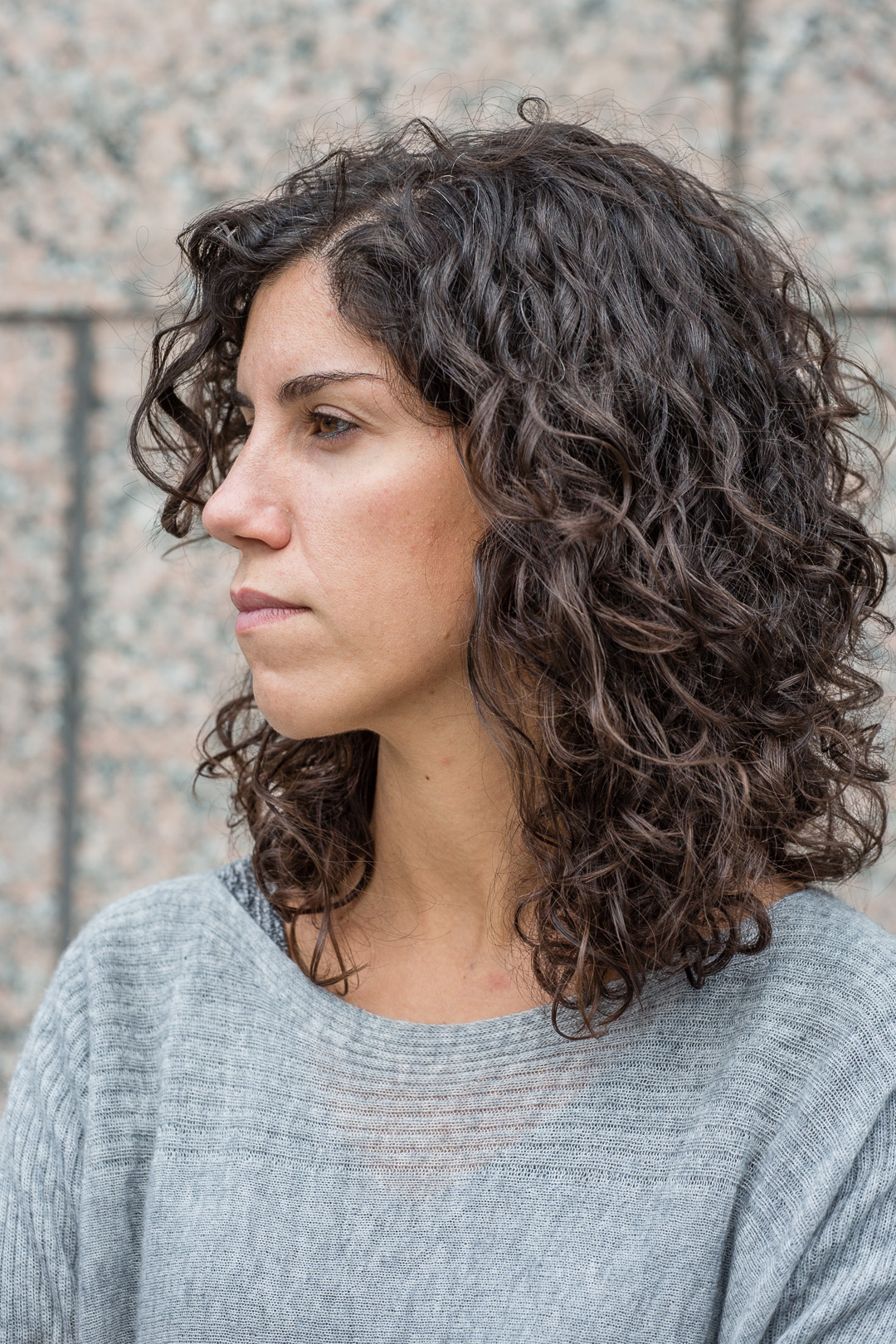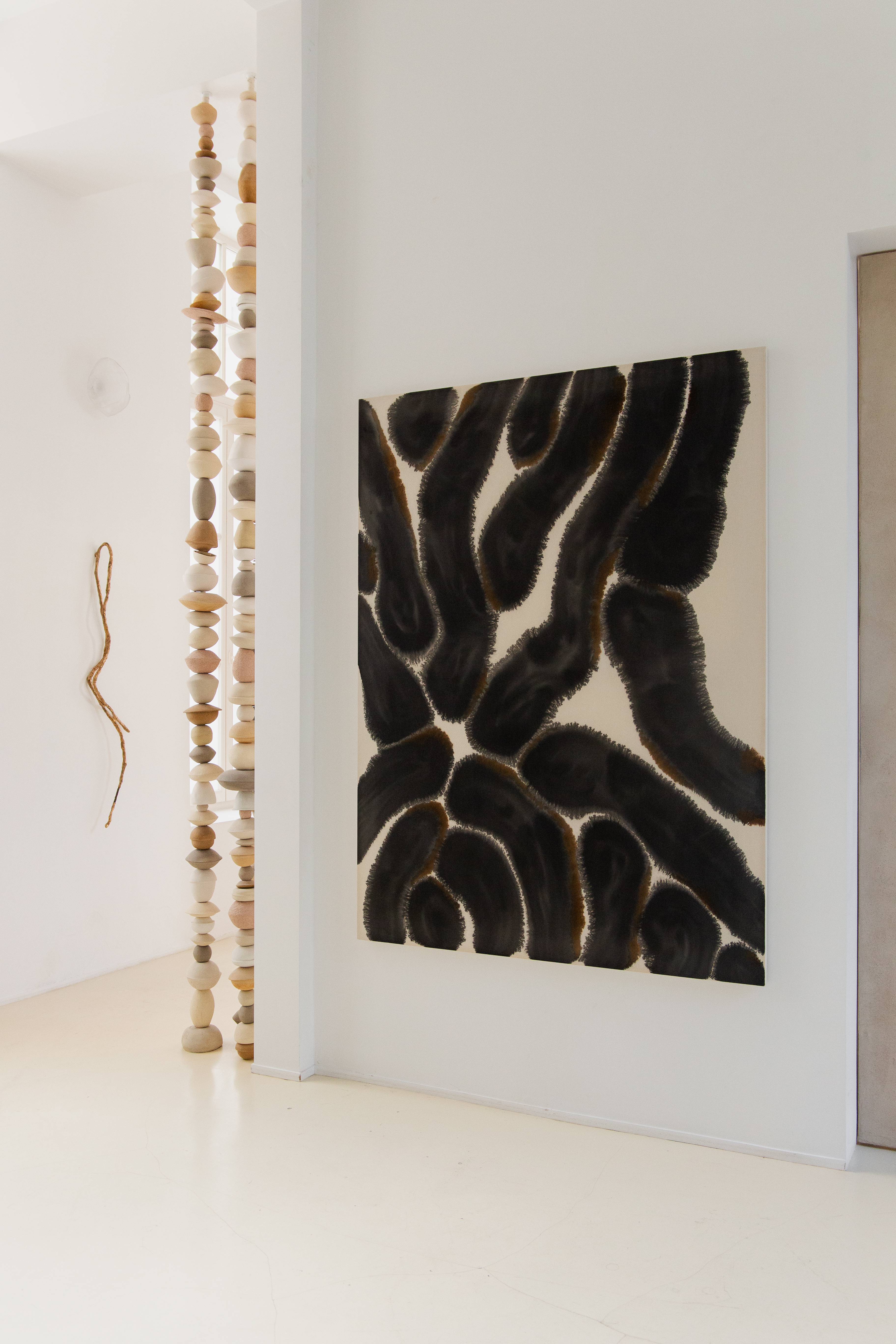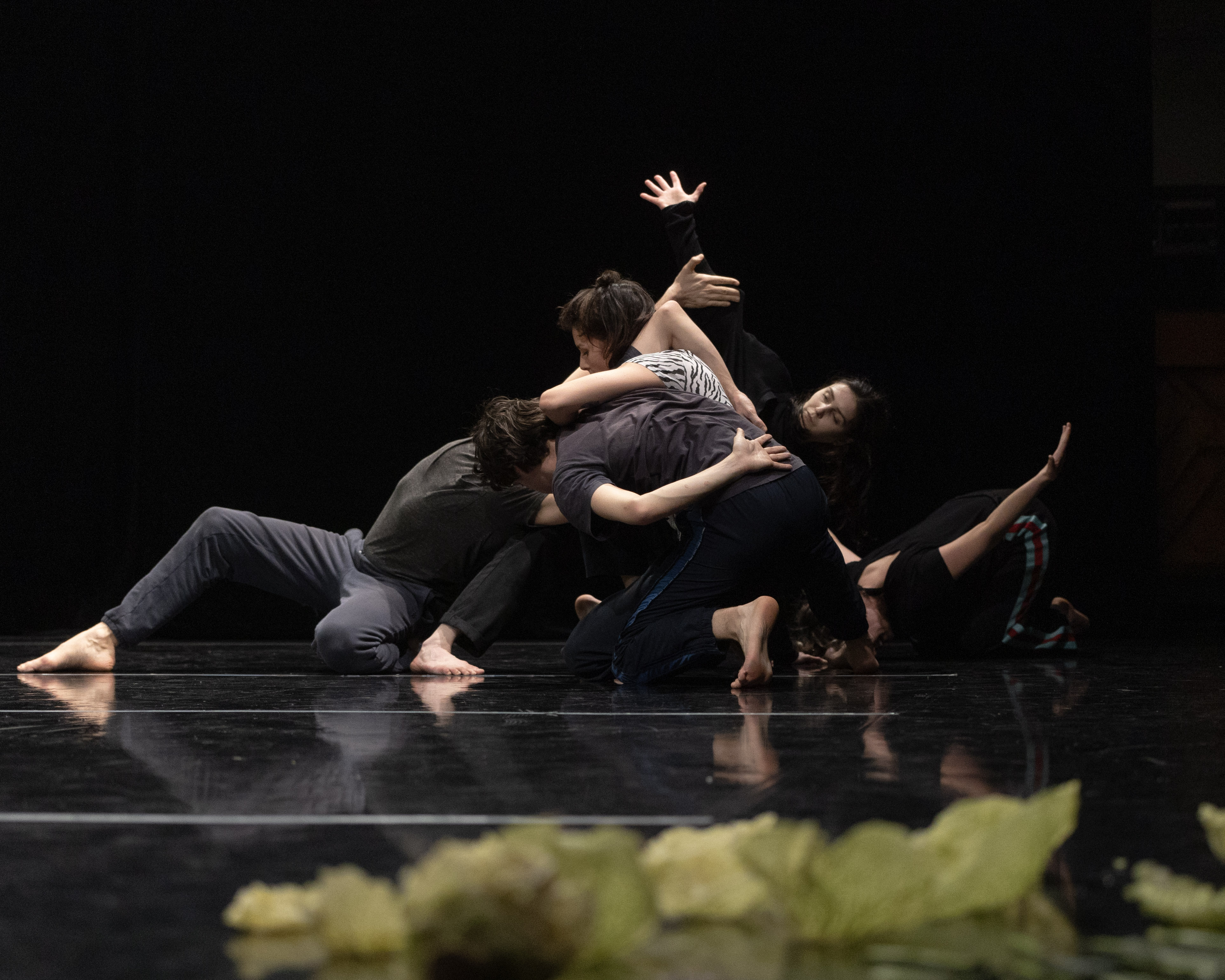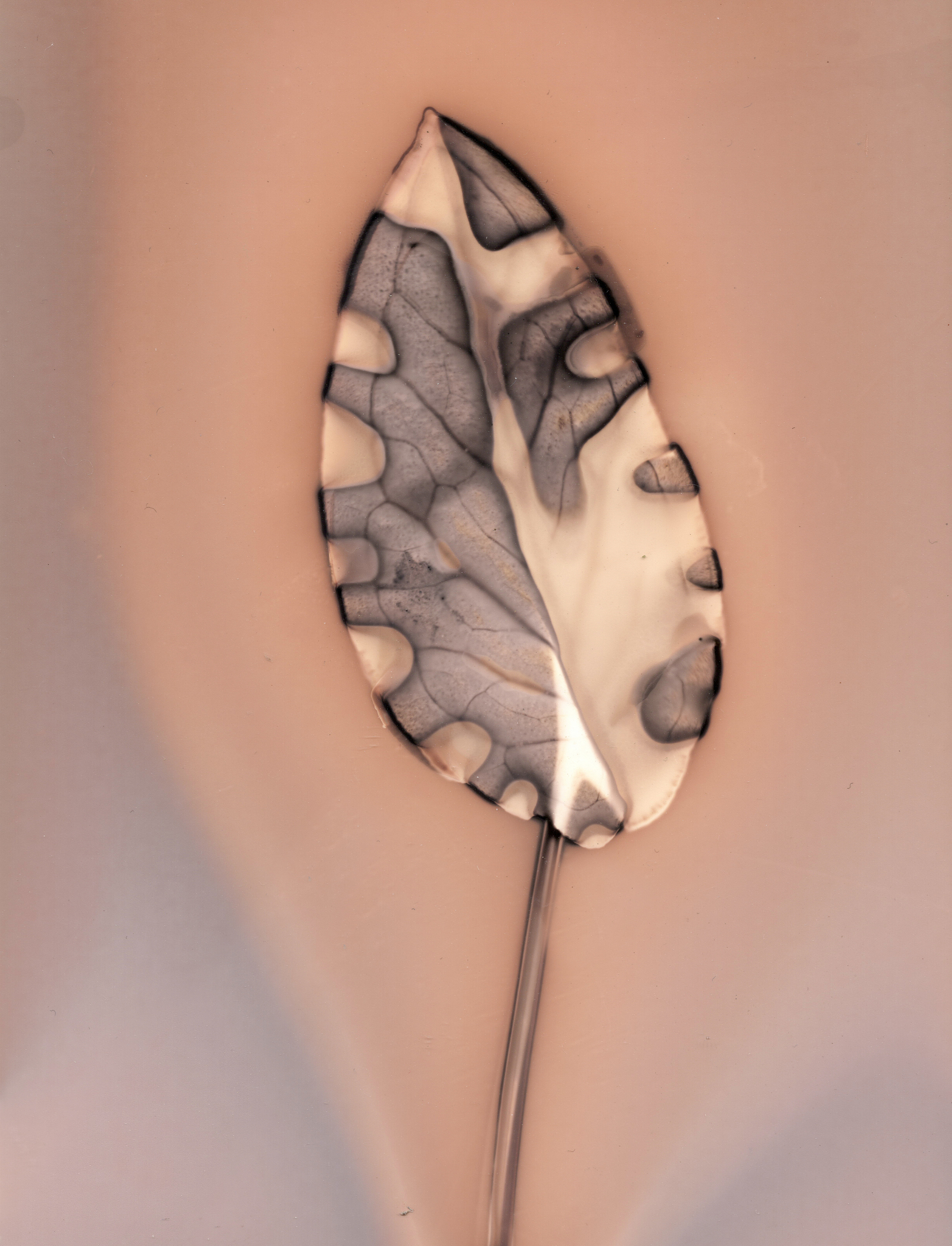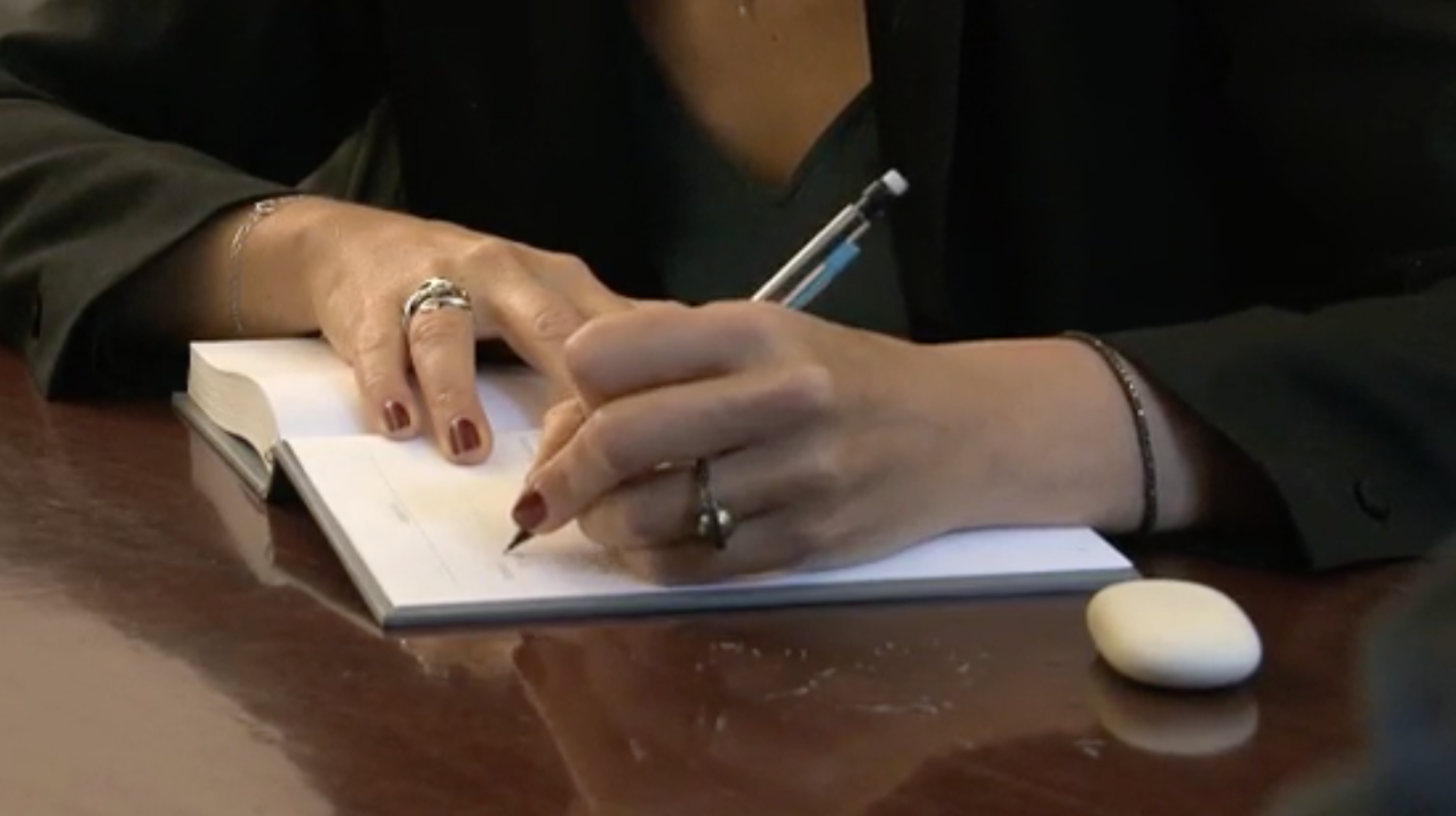
Screening of Supprimer, Modifier et Preserver, a film by CARLOS AMORALES
As part of Elena Mazzi's residency in Brussels, Carlos Amorales will present his film "Supprimer, Modifier et Préserver" on Saturday 18th of November at 18:00 in the spaces of Fondation Thalie.
PROGRAMME
18:00 Introduction by Nathalie Guiot and the artists Elena Mazzi and Enrica Camporesi
18.15 Screening of "Supprimer, Modifier et Preserver" by Carlos Amorales
18.45 Talk by Carlos Amorales / Drink
20:30 The end
Free entrance / PLEASE NOTE THAT PLACES ARE LIMITED - RSVP REQUIRED at event@fondationthalie.org
About "Performing the Self – the interview" by Enrica Camporesi & Elena Mazzi
Inspired by the work of Carlos Amorales, artists Elena Mazzi and Enrica Camporesi explore the very specific juridical case of the asylum procedure in today’s Europe. The asylum seeker has to perform his own lifestory at his best in order to succeed and get the new juridical status of refugee. Interviewing protection officers and asylum seekers, lawyers, social workers and refugees as well as reading through the academic literature, “Performing the self – the interview” stages the impossible dialogue between a protection officer and an asylum seeker just before the interpreter arrives. What could happen in this overloaded but unexpected moment? Can the asylum seeker question the rules of the game? What if the protection officer would take a distance from his/her role as a public figure? “Performing the self – the interview” builds up an imaginary space that redefines the existing protocol of questions and answers, mutual expectations and power relations.
"Supprimer, Modifier et Preserver", Carlos Amorales, 2011, (28' 42")
"Supprimer, Modifier et Preserver" is a work that deals with and challenges the notion of right as an independent, organic, rational and complete system, as well as how much and to what extend it can be considered an expression of the will of the "people".
An updated version of the French Civil Code was printed with graphite and then given to different lawyers to erase, modify or preserve the laws that each one considered fundamental. The French Civil Code (for long known as the Napoleonic code), enacted in 1804 and considered a product of the French Revolution, has been highly influential in the development of civil codes in much of Europe, South America, Africa and Asia. Given that codes and constitutions are important historical documents influencing society and over determining its values, this work encourages re-thinking the social rules that govern us, individual responsibility within larger political debates, the importance of a sharp division between public and private law and of the making and meaning of such constructs.
"Supprimer, Modifier et Préserver" was produced by Macval (www.macval.fr) on the occasion of the residence of the artist. The work is a unique copy acquired by Macval.
Carlos Amorales (1970, lives and works in Mexico City)
Since the early 1990's, Carlos Amorales has developed a graphic language that detaches itself from the compression and fragmentation of images compiled in his “Liquid Archive” long-term project. This process gave rise to a codified alphabet, to which we do not initially have access, but whose plasticity locates it at the limit between image and sign. This language, whose sources range from the personal to the political, and frequently encompass popular iconography, is used in traditional printed formats like posters, books, and newspapers. Nevertheless, in exploring media like sculpture and video, these works explore the use of language and its limits, posing the question of what lies beyond language.
Elena Mazzi & Enrica Camporesi share the same curiosity for the intriguing topic of the oral witnesses as a very special source for performance and historiography. Elena Mazzi (1984) is a visual artist, working with specific geographical and socio-political contexts. Her poetics deal with the relationship between man and the environment in which he lives and with which he must reckon on a daily basis. This analysis, which often follows an anthropological approach, investigates and documents an identity which is at the same time personal and collective, and gives rise to forms of exchange and transformation.
After an academic formation in Arab language and literature, Enrica Camporesi (1985) combined working as a theatre director for socio-cultural projects with refugees and asylum seekers with her research, translating and writing activity in Lebanon, Egypt, Italy and Belgium. She currently works as a social integration teacher for Arab newcomers and refugees in Antwerpen, gathering stories, interviews and different perspectives on truth and credibility. Based on her social research, she is further developing her theatrical and writing practice.
PROGRAMME
18:00 Introduction by Nathalie Guiot and the artists Elena Mazzi and Enrica Camporesi
18.15 Screening of "Supprimer, Modifier et Preserver" by Carlos Amorales
18.45 Talk by Carlos Amorales / Drink
20:30 The end
Free entrance / PLEASE NOTE THAT PLACES ARE LIMITED - RSVP REQUIRED at event@fondationthalie.org
About "Performing the Self – the interview" by Enrica Camporesi & Elena Mazzi
Inspired by the work of Carlos Amorales, artists Elena Mazzi and Enrica Camporesi explore the very specific juridical case of the asylum procedure in today’s Europe. The asylum seeker has to perform his own lifestory at his best in order to succeed and get the new juridical status of refugee. Interviewing protection officers and asylum seekers, lawyers, social workers and refugees as well as reading through the academic literature, “Performing the self – the interview” stages the impossible dialogue between a protection officer and an asylum seeker just before the interpreter arrives. What could happen in this overloaded but unexpected moment? Can the asylum seeker question the rules of the game? What if the protection officer would take a distance from his/her role as a public figure? “Performing the self – the interview” builds up an imaginary space that redefines the existing protocol of questions and answers, mutual expectations and power relations.
"Supprimer, Modifier et Preserver", Carlos Amorales, 2011, (28' 42")
"Supprimer, Modifier et Preserver" is a work that deals with and challenges the notion of right as an independent, organic, rational and complete system, as well as how much and to what extend it can be considered an expression of the will of the "people".
An updated version of the French Civil Code was printed with graphite and then given to different lawyers to erase, modify or preserve the laws that each one considered fundamental. The French Civil Code (for long known as the Napoleonic code), enacted in 1804 and considered a product of the French Revolution, has been highly influential in the development of civil codes in much of Europe, South America, Africa and Asia. Given that codes and constitutions are important historical documents influencing society and over determining its values, this work encourages re-thinking the social rules that govern us, individual responsibility within larger political debates, the importance of a sharp division between public and private law and of the making and meaning of such constructs.
"Supprimer, Modifier et Préserver" was produced by Macval (www.macval.fr) on the occasion of the residence of the artist. The work is a unique copy acquired by Macval.
Carlos Amorales (1970, lives and works in Mexico City)
Since the early 1990's, Carlos Amorales has developed a graphic language that detaches itself from the compression and fragmentation of images compiled in his “Liquid Archive” long-term project. This process gave rise to a codified alphabet, to which we do not initially have access, but whose plasticity locates it at the limit between image and sign. This language, whose sources range from the personal to the political, and frequently encompass popular iconography, is used in traditional printed formats like posters, books, and newspapers. Nevertheless, in exploring media like sculpture and video, these works explore the use of language and its limits, posing the question of what lies beyond language.
Elena Mazzi & Enrica Camporesi share the same curiosity for the intriguing topic of the oral witnesses as a very special source for performance and historiography. Elena Mazzi (1984) is a visual artist, working with specific geographical and socio-political contexts. Her poetics deal with the relationship between man and the environment in which he lives and with which he must reckon on a daily basis. This analysis, which often follows an anthropological approach, investigates and documents an identity which is at the same time personal and collective, and gives rise to forms of exchange and transformation.
After an academic formation in Arab language and literature, Enrica Camporesi (1985) combined working as a theatre director for socio-cultural projects with refugees and asylum seekers with her research, translating and writing activity in Lebanon, Egypt, Italy and Belgium. She currently works as a social integration teacher for Arab newcomers and refugees in Antwerpen, gathering stories, interviews and different perspectives on truth and credibility. Based on her social research, she is further developing her theatrical and writing practice.
